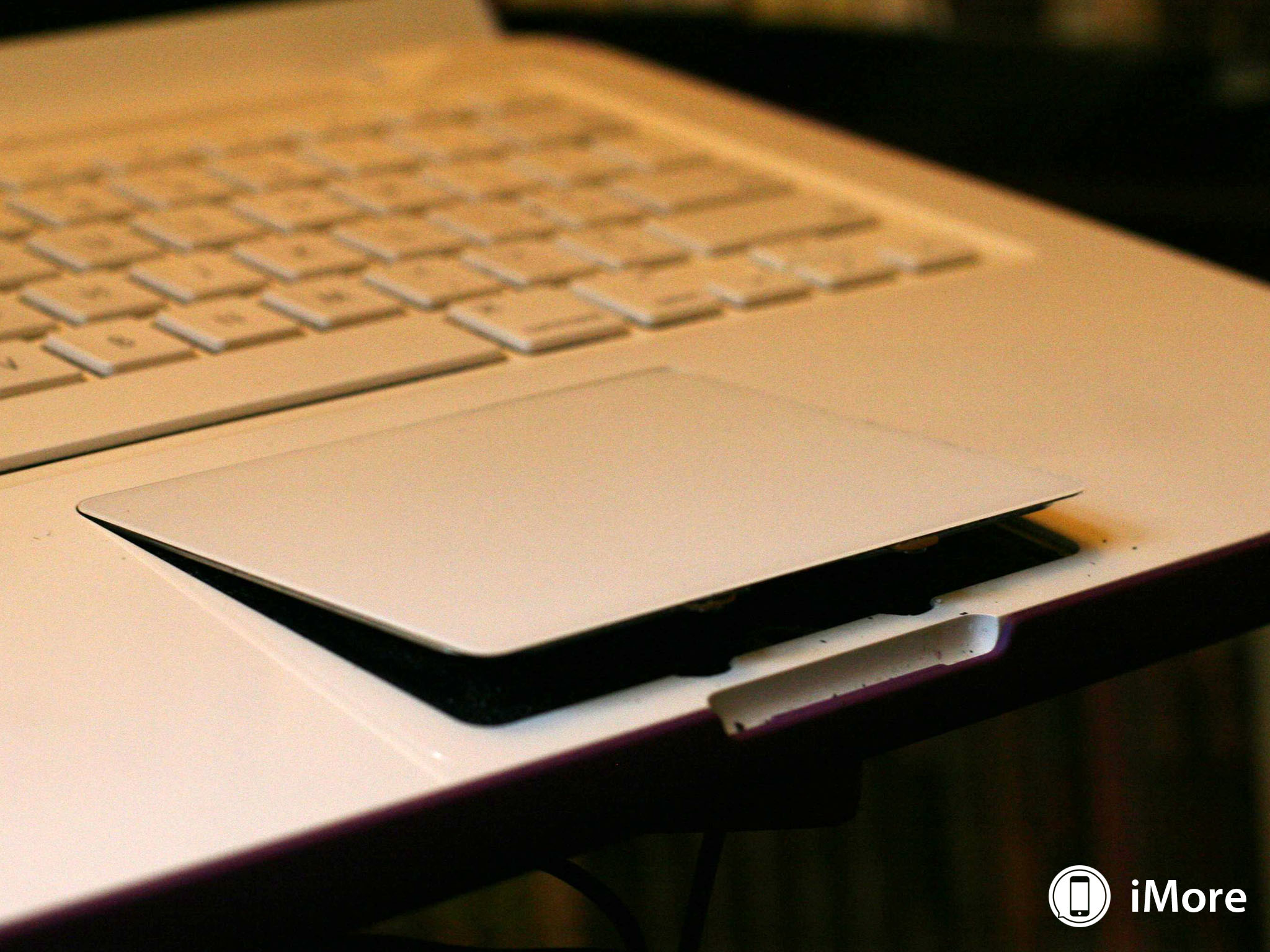Thinner MacBooks make bigger battery problems

When it comes to batteries, Apple could do a better job. Batteries wear out. They stop holding a charge. What's worse, sometimes they fail dramatically. They swell up, distort. That's what recently happened to my wife's four-year-old white MacBook. Now the MacBook is physically damaged because of it.
She noticed the trackpad was getting harder and harder to push over time. It's something she brought to the attention of the Geniuses at the local Apple retail store back in 2012, when the AppleCare extended warranty was still in effect. They replaced some parts, but not the battery.
So she lived with it. In the past few weeks, it went from bad to worse. The trackpad actually separated from the MacBook, at least partly. It popped up from the bottom to stand at an angle from the keyboard and wrist rest area. (At about the same time, the MacBook started reporting a "Service Battery" error. No kidding, really?)
The battery underneath was starting to degrade. And as it's gotten worse, the lithium-ion rechargeable battery has swollen like a balloon. I queried Twitter yesterday and was deluged by anecdotes of people who had swollen laptop batteries; some even shared pictures. It's happened to me before, as well.
This isn't specific to Apple products. It's well documented problem with batteries of all types. Almost everyone has seen a disposable battery leak at some point or another.
The sad fact is that battery technology is woefully behind the industries that depend on it. Which is one of the reason so much of the volume of the interior of your electronic devices is dedicated to the battery.
If rechargeable battery technology developed at the same pace as the circuitry inside your Macintosh or your iPhone, you'd have watch battery-sized power packs that lasted for weeks - batteries that wouldn't have to worry about seeing explode in slow motion, like this one.
Master your iPhone in minutes
iMore offers spot-on advice and guidance from our team of experts, with decades of Apple device experience to lean on. Learn more with iMore!
We're still in the process of getting the battery replaced and the case fixed, but it's gotten me thinking: Apple really screwed us over a few years ago when they got rid of removable laptop batteries. And don't get me started on the iPhone and iPad.
Once upon a time not too long ago Apple made laptop computers with removable batteries. In fact, for years, every Mac laptop that I used or serviced as an IT guy had a removable battery that could be replaced.
But somewhere along the way, Apple elected to eschew user accessibility in favor of thinness. The result is that Apple's laptop designs are wafer-thin, lightweight and elegant, but they're also difficult to work on unless you have specialized tools. And when parts inside fail, they can fail spectacularly, at least in the case of the battery. Apple (rightly) considers your device's battery to be a wearable part, not covered under your warranty. But when it fails, it shouldn't make the case burst at the seams.
This limits battery replacement to a very limited set of Apple's customers: only those folks who are able to get the tools needed and work with the small components, understanding how Apple's hardware is put together. For everyone else, it's a trip to the Apple Store or wherever they get their devices repaired. And that usually means dropping them off or setting aside an hour or two to take care of it. That's a lot less convenient than just ordering a replacement battery from Amazon and popping it in.
That's great for Apple service providers. It's a guaranteed revenue stream, because most folks don't want anything to do with the inside of their computers. But it's a fundamentally more expensive and more involved process than just buying a new battery, which is what you were able to do with the MacBook up until 2008.
Just like most of the parts inside the Mac, Apple sources batteries from third parties, rather than making them itself. I'm certain that Apple is pushing on its suppliers all the time to improve their manufacturing processes and technology. But the way batteries work right now is the problem.
Bonnie's laptop is four years old. I'm sure battery technology has progressed since 2010, but it gives me serious pause about what sort of shape my 15-inch Retina MacBook Pro is going to be in come 2016.
Tim Cook talks a good game about Apple's disruptive ideas and its commitment to the trust of its customers. Apple could put its money where its mouth is on that last point by conceding that batteries in its laptops, at the very least, should be a bit more user-serviceable than they are now.

